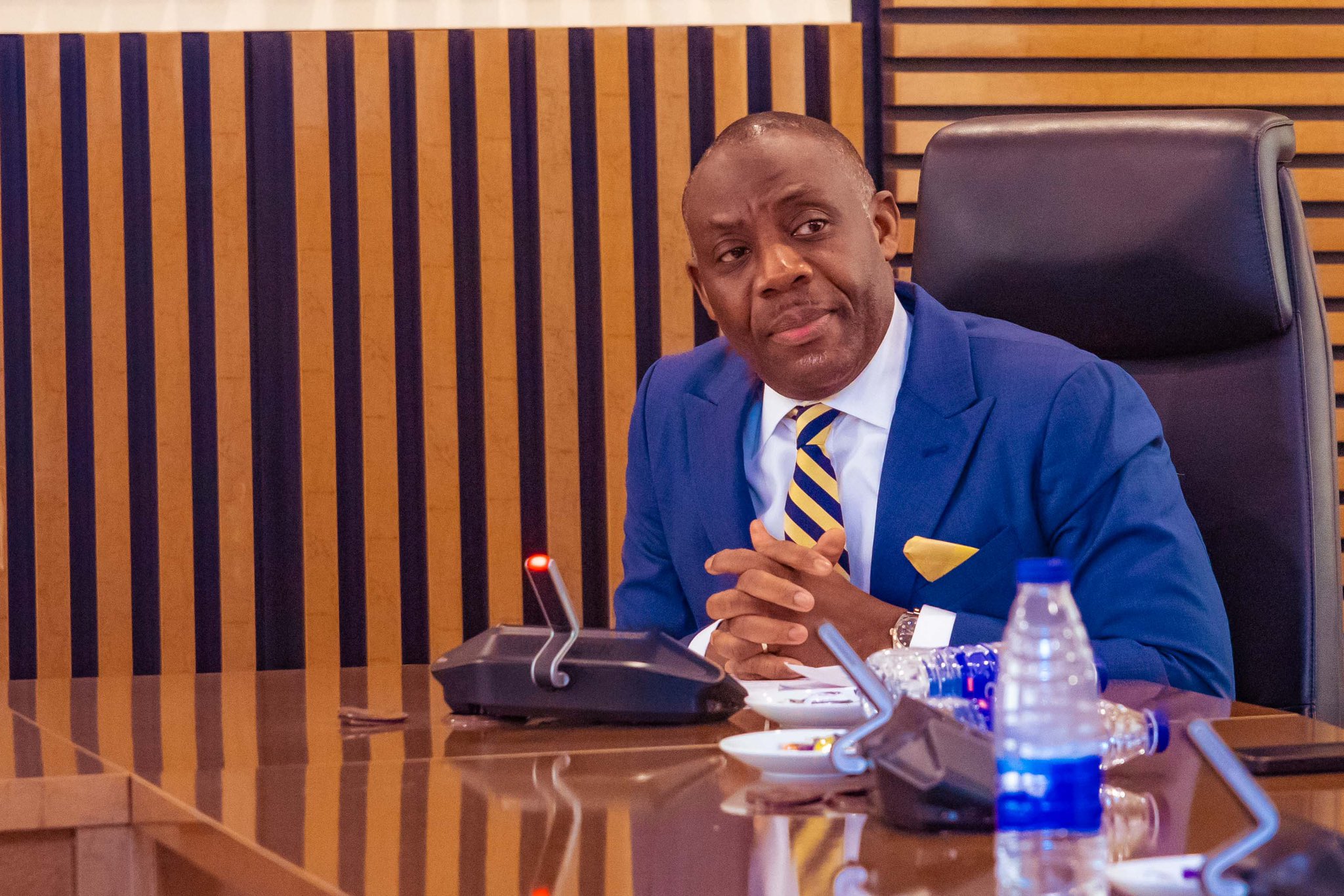Education
Police probe 19-year-old who threatened JAMB with N1b suit

There was mild drama at the headquarters of the Joint Admissions and Matriculation Board (JAMB), Bwari, FCT on Friday when Chinedu Ifesinachi John, a 19-year-old candidate in the 2021 Unified Tertiary Matriculation Examination (UTME), who accused the board of altering his original score of 380, was handed over to the Nigeria Police for investigation.
The candidate, according to JAMB’s Head of Information and Media, Fabian Benjamin, has allegedly confessed to committing the offence.
He said: “The candidate who was paraded for forging the Board’s result has confessed after the Board discovered that he saved his sister’s number on his phone as 55019 and used the phone to send the fake result to his phone. When he sends such results they come as 55019.
“He pleaded for mercy that he had to do that when the result he got was not up to what could give him his desired programme.
“The police are on their way to Enugu to arrest his sister.”
There was mild drama at the headquarters of the Joint Admissions and Matriculation Board (JAMB), Bwari, FCT on Friday when Chinedu Ifesinachi John, a 19-year-old candidate in the 2021 Unified Tertiary Matriculation Examination (UTME), who accused the board of altering his original score of 380, was handed over to the Nigeria Police for investigation.
The candidate, according to JAMB’s Head of Information and Media, Fabian Benjamin, has allegedly confessed to committing the offence.
He said: “The candidate who was paraded for forging the Board’s result has confessed after the Board discovered that he saved his sister’s number on his phone as 55019 and used the phone to send the fake result to his phone. When he sends such results they come as 55019.
“He pleaded for mercy that he had to do that when the result he got was not up to what could give him his desired programme.
“The police are on their way to Enugu to arrest his sister.”
John had claimed he scored 380 in the examination conducted in June this year and was surprised to receive 265 from the board after the results were released. After several enquiries, 265 kept appearing as his score as against the 380 score.
Following the alleged “alteration” of the UTME score, his father, John Ifenkpam approached an Enugu – based lawyer, Ikeazor Akaiwe, who wrote to JAMB for another opportunity for the boy to retake the examination and demanded N1 billion as damages.
The lawyer said the N1 billion was to cover physical and emotional trauma the boy had suffered from being offered “two separate scores from 2019 – 2021.”
John claimed that his UTME scores from 2019 till 2021 had been “altered” by the board, thereby denying him the opportunity to study his desired course – medicine.
On Friday, the candidate, his father and lawyers traveled down to Abuja from Enugu state following an invitation from the management of the board led by the Registrar of JAMB, Prof Is-haq Oloyede.
Initially, the boy was given some minutes to “come clean” in a closed session with his father and lawyers about the results he was parading but insisted that his original score from the examination was 380.
At the Friday meeting, documentary evidence tendered by the board showed that John actually scored 265 not the 380 he had claimed.
Oloyede accused the candidate of result tempering, adding that he will be handed over to the police for investigation and subsequently prosecuted.
The Registrar said John was among 11 eleven other candidates who allegedly forged their results that the board would prosecute.
He said the original result issued to John would be withdrawn pending the end of the investigation.
He also said a team of security agents would visit Enugu state to arrest members of a tutorial group the boy confessed to belong to.
John’s lawyer, Ikeazor, appealed to the board to give room for further investigation.
He said: “I will not stand against investigation. Let there be investigation but what I will not agree to is to prejudge him.”
Education
12-year-old Nigerian girl Eniola Shokunbi invents air filter to reduce spread of diseases in US schools

12-year-old Nigerian girl Eniola Shokunbi invents air filter to reduce spread of diseases in US schools
A 12-year-old Nigerian from Connecticut, USA, Eniola Shokunbi, has designed an air filter to reduce spread of air borne diseases in the US schools.
The design aims at creating low-cost air filters for classrooms.
The Connecticut State Bond Commission has approved $11.5 million in funding for the design.
Eniola in her fifth grade at Commodore MacDonough STEM Academy of Middletown, they were tasked with creating a solution to enhance safety in schools during potential future pandemics.
Therefore, to combat airborne viruses like COVID-19, she developed a simple but effective air filter system.
Design
Shokunbi’s air filter design showcases both innovation and cost-effectiveness. The unit is constructed using a simple combination of components: a box fan, four furnace filters, duct tape, and cardboard.
READ ALSO:
- Gunmen kill two soldiers in Abia checkpoint attack
- 94 arrested as task force raids Lagos rail corridor squatters
- Two dead, buildings destroyed in American factory explosion
This ingenious assembly results in a remarkably low production cost of approximately $60 per unit. This makes it a highly affordable alternative to commercial air purifiers.
Eniola Shokunbi said, “The air goes through all the sides, and it comes out of the top. So it filters in and out.”
With support from scientists at the University of Connecticut, UConn, Eniola’s design underwent rigorous testing.
The Environmental Protection Agency, EPA, confirmed that the device effectively eliminates over 99% of airborne viruses, showcasing its potential to significantly improve classroom safety.
The recent approval by the State Bond Commission allocates $11.5 million for the implementation of these air filters across Connecticut schools.
This funding is part of UConn’s SAFE-CT: Supplemental Air Filtration for Education Program, which aims to ensure that every public school classroom has access to these vital air purification systems.
Eniola’s vision extends beyond Connecticut; she aspires to see her air filters implemented in classrooms nationwide.
“A lot of people don’t realize that the only thing standing between them and getting sick is science,” Eniola Shokunbi said.
Also, she emphasized the importance of investing in scientific solutions for children’s health.
12-year-old Nigerian girl Eniola Shokunbi invents air filter to reduce spread of diseases in US schools
Education
Minister wants FG to revive Jonathan’s Almajiri system of education

Minister wants FG to revive Jonathan’s Almajiri system of education
Alausa made the call when the Senate Committee on Tertiary Institutions and TETFund led by its Chairman, Sen. Muntari Dandutse, visited the ministry for an oversight function.
Alausa, who was newly posted to the ministry, decried the high rate of out-of-school children, saying that with enough fund allocation, the menace would be tackled.
“We have up to 20 million out-of-school children.
“I met with the Executive Secretary of the National Commission for Almajiri and Out-of-School, who said that the 20 million was even under-quoted.
“It is about 40 million to 50 million. This is a danger that can consume everybody. We have to make these schools work.
“Former President Goodluck Jonathan built about 137 Almajiri schools during his tenure, but today, it is sad that only a few of these schools are operational,” he said.
Alausa said that there was a lot of infrastructural decay in the schools, adding that with the Almajiri Commission established by an act of Parliament, the ministry would empower the children.
READ ALSO:
He, however, called for more funding to achieve the desired goal of ensuring that out-of-school children were taken off the streets.
The minister further said that the ministry would find a way of keeping children in school by making the Home Grown Feeding Programme viable and sustainable.
“We will design the nutrition, we will ensure that the children get good nutrition which will translate into better brain development, and enable us to develop human capital,” he said.
He also said that the nation was churning out graduates that were not employable.
“We have to refocus, and the way we are refocusing is that going forward, we will focus on Science Technology, Engineering, Mathematics and Medical Sciences (STEMM).
“Today, we have hospitals built, infrastructure is there and funded, but we do not have medical personnel to run them.
“We will also focus on technical, and vocational education. We will encourage 80 per cent practical training and 20 per cent theory,” she said.
The Chairman of the Committee, Sen. Muntari Dandutse, said that the Senate would collaborate with the ministry to make education a priority in the country.
Dandutse also called on the minister to give attention to the issues of security and power supply to higher institutions.
“Most of the allocation to the universities is going to the payment of electricity bills. We need to work together to ensure that they have an uninterrupted power supply,” he said.
Minister wants FG to revive Jonathan’s Almajiri system of education
NAN
Education
FG reverses 18-year admission entry for varsities, sets new priorities

FG reverses 18-year admission entry for varsities, sets new priorities
In a significant policy shift, Nigeria’s newly appointed Minister of Education, Dr. Tunji Alausa, has announced the abolition of the 18-year admission benchmark for tertiary institutions across the country.
During his inaugural press conference in Abuja on Wednesday, he also indicated plans to review the nation’s education policy.
Despite these changes, Alausa reaffirmed that there will be no reversal of the Federal Government’s recent decision to invalidate over 22,700 degree certificates obtained by Nigerians from certain “fake” universities in neighboring Togo and the Benin Republic.
This move aims to uphold the integrity of the nation’s education system.
Emphasizing the need for practical education, Alausa noted that the current system cannot continue producing graduates without corresponding job opportunities, which has contributed to Nigeria’s rising unemployment rates.
To address this, he announced plans for the federal government to partner with private sector operators to provide training and development opportunities for students, unlocking their potential for future employment.
Additionally, Alausa expressed a commitment to empowering universities of agriculture to adopt commercial farming practices as a strategic approach to combat food insecurity in the country.
FG reverses 18-year admission entry for varsities, sets new priorities
-

 Sports1 day ago
Sports1 day agoBREAKING: Super Eagles qualify for AFCON 2025
-

 Aviation1 day ago
Aviation1 day agoDisaster averted as bird strike hits Abuja-Lagos Air Peace flight
-

 metro11 hours ago
metro11 hours agoCourt orders varsity to pay lecturer N40m compensation for wrongful dismissal
-

 Education2 days ago
Education2 days ago12-year-old Nigerian girl Eniola Shokunbi invents air filter to reduce spread of diseases in US schools
-

 Opinion11 hours ago
Opinion11 hours agoApomu king turns warmonger for PDP
-

 Politics2 days ago
Politics2 days agoWhy I can’t form coalition with Peter Obi – Sowore
-

 News1 day ago
News1 day agoEdo Gov Okpebholo freezes govt accounts, reverses ministry’s name
-

 News3 days ago
News3 days agoTwo Nigerian companies developed contactless passport renewal – FG










